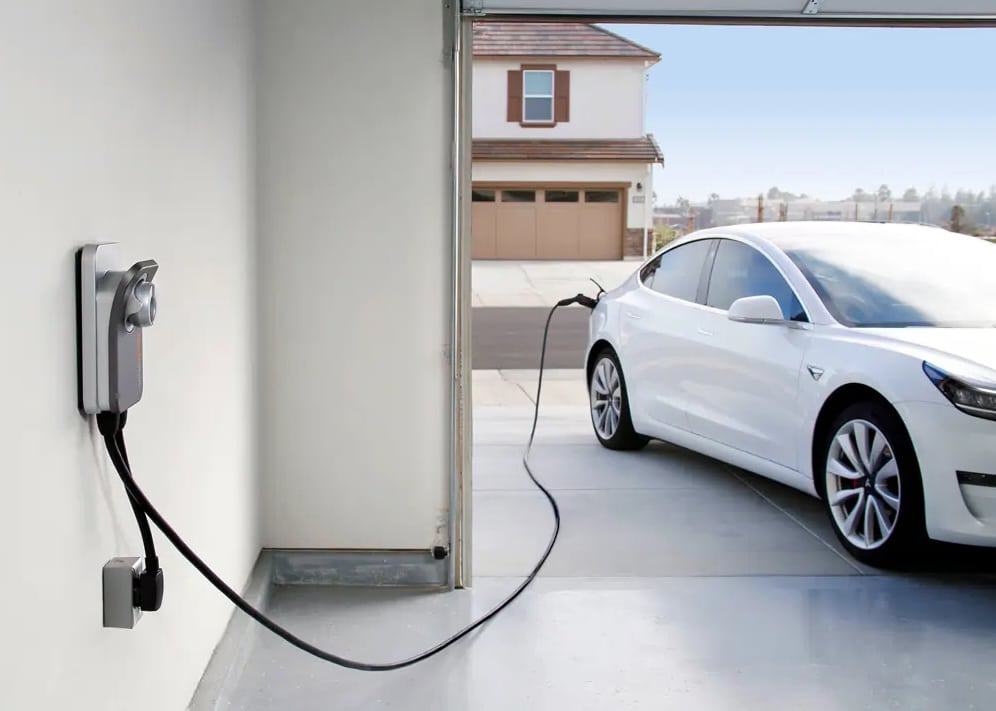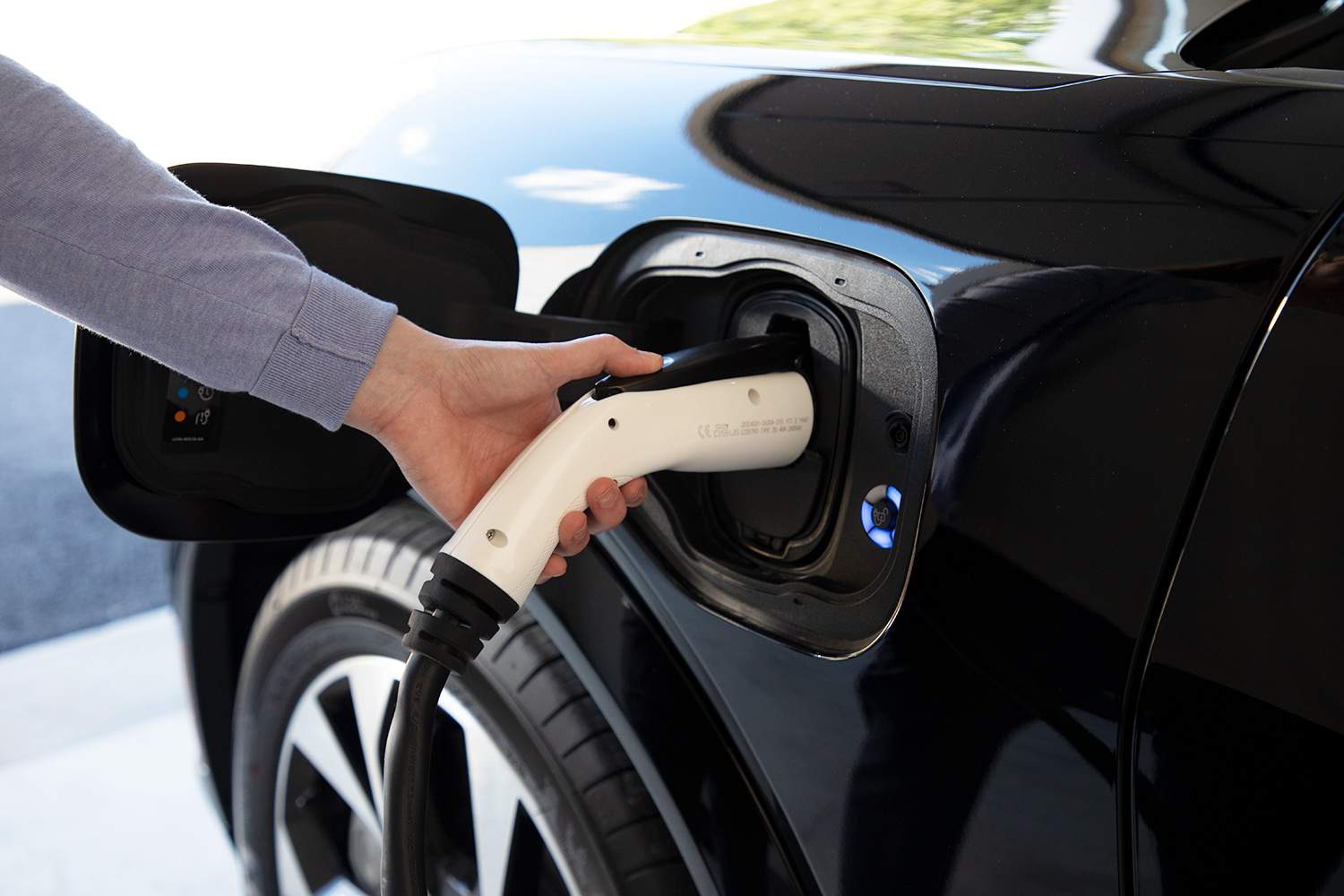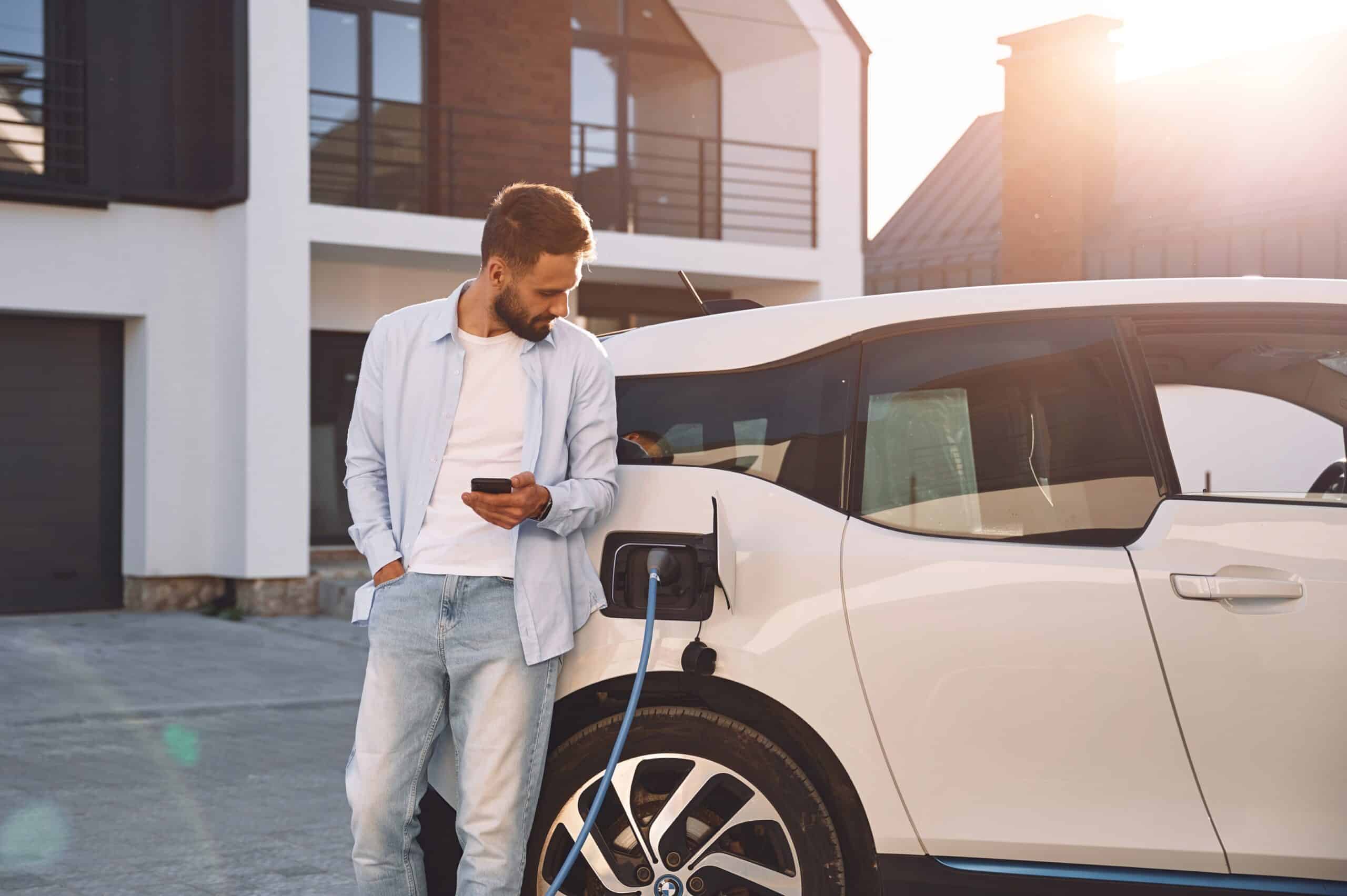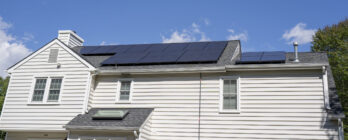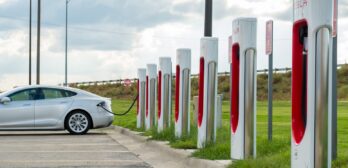Electric vehicles have many benefits, including a lower carbon impact than gas vehicles, zero tailpipe emissions, and reduced operational maintenance. Plus, EVs are fun to drive! For many drivers the most compelling advantage is that EVs can be a cheaper alternative when compared to gas vehicles over a car’s lifetime. This advantage only continues to increase as EV costs come down and the price of gas goes up.
EV drivers can maximize the lifetime savings of their EV purchase by charging their vehicle at home, as charging at home is typically the cheapest charging option available. Many drivers also find it to be the easiest and most convenient way to charge. For some customers, state policy and utility rebate programs may provide additional cost savings to even further reduce lifecycle costs of EV ownership.
In this article, we explain how the costs of charging at home compare with charging on-the-go or fueling with gasoline. We’ll walk you through how to keep the costs of fueling your EV as low as possible.
Electric Cars – Are They Cheaper than Gas Cars?
For drivers considering purchasing an electric car, the first question that often comes up is “will it cost me more than a gas car?” The answer is a bit more complicated than a simple “yes” or “no”, but the key takeaway is that electric vehicles are typically cheaper than their gas counterparts over the lifetime of the vehicle.
Consider the following:
- EVs tend to have a HIGHER purchase price than their gas counterparts
- EVs tend to have LOWER maintenance and repair costs than their gas counterparts
- EVs tend to have LOWER fuel costs than their gas counterparts
Across popular vehicle types, these factors combine to mean that EVs are more expensive up-front but lower cost overall when compared with gas cars. As an example, this analysis compares electric versus gas costs for four popular vehicle categories. Each category demonstrates the pattern of higher up-front cost but lower total cost of ownership. While actual costs vary based on the type of car you’d like to purchase and what model you choose, this is a good rule to keep in mind when purchasing your vehicle.
Benefits of Charging Your EV at Home
As we transition to electric cars, public EV charging infrastructure is one of the most visible signs of the transformation underway. We suddenly begin to notice fast chargers at local gas stations, charging stations at grocery stores, as well as stations for public use at our workplace. Public charging infrastructure is extremely important for ensuring that driving an EV is convenient and reliable.
The reality is, however, that 80% of EV charging happens at home. And there’s two good reasons why. First, charging at home is the most convenient way to charge for many drivers. And second, it is the lowest-cost way to charge a car.
Convenience of Charging Your EV at Home
Let’s start with the convenience factor. With a gas vehicle, you need to stop at a gas station to refill your tank each time it approaches empty, which takes time out of your day. If you have an EV but primarily charge it on the go, it will more than likely require additional planning and even more time than fueling a gas car. Locating a public fast charging station and charging your car may take upwards of 30 minutes and more substantial deviation from your route than gas car fueling would.
With an EV and a home Level 2 charging solution, you can simply plug your car into your charger at home and charge your car up overnight. This takes no time at all, and your car is ready when you are. Many EV drivers find this experience to be much simpler and more convenient than fueling a gas car or fueling an EV at public stations.
On top of being more convenient, home charging is the lowest cost option for fueling a vehicle. Say you drive a Tesla Model 3 and you pay $0.17 for electricity through your local provider. If you drive an average amount (37 miles per day), you’d be paying about $672 in fuel costs over the course of a year. Compare this against almost $1800 per year for fueling a similar gas car.
Leveraging public infrastructure to charge your EV typically costs more than using your home’s electricity to charge. A publicly available Level 2 charging station costs drivers $0.23/kWh on average in Virginia, while DC fast charging stations cost drivers $0.47/kWh on average in Virginia.* While many drivers use public charging stations sparingly on longer trips, charging predominantly at home is the best way to keep driving costs down.
The table below provides an example of how the cost of charging an EV at home compares with charging exclusively with public fast charging or fueling a gas car.
| Charging a Tesla Model 3 at Home |
Charging a Tesla Model 3 with public fast charging |
Fueling a 30 MPG gas car | |
|---|---|---|---|
| Miles per unit of fuel | 3.33 miles per kWh | 3.33 miles per kWh | 30 miles per gallon |
| Distance per year | 13,476 miles | 13,476 miles | 13,476 miles |
| Fuel per year | 4,047 kWh | 4,047 kWh | 449.2 gallons |
| Cost of fuel per unit | $0.166 per kWh | $0.47 per kWh | $3.96 per gallon |
| Total fuel cost | $672 | $1,902 | $1,778 |
While the figures above are illustrative, they provide a good benchmark for thinking about comparative costs. The bottom line: charging at home is the best way to keep your fuel costs as low as possible. If you’re ready to install a Level 2 charging station at home, we can provide you with full-service home EV charging installation. Get in touch!
Other Financial Tools to Optimize Your Savings
Please keep in mind that there are many tools available to customers to decrease the costs of driving an EV such as local utility rebates, utility rate programs, and state and federal policy provisions.
Many electric utilities provide financial incentives to help encourage smart home charging. For example: If you’re a Dominion Energy customer, you may be eligible for a $125 rebate for the purchase of a qualified Level 2 charging station for your home. By agreeing to participate in Dominion Energy’s demand response program, which helps you charge during times that are best for the electricity grid, you also receive a $40 annual benefit.
The Inflation Reduction Act May Provide a Financial Benefit
The newly passed Inflation Reduction Act provides a tax credit of up to $7,500 for the purchase of a new EV and up to $4,000 for the purchase of a used EV. It also provides tax benefits for the installation of home charging station equipment, up to $1,000. As always, consult with your tax professional to see how these provisions might impact your financial situation.
Will Adding Solar Increase My Savings?
Not surprisingly, many EV drivers are also interested in adding rooftop solar to their homes. Depending on your home’s unique circumstances, you may be able to realize additional bill savings through a solar system. Lower electricity costs with solar can translate into lower-cost EV charging over the lifetime of your system.
There are a number of factors that determine whether a particular home will be a good fit for solar, including rooftop orientation and tilt, extent of shading, and in-home energy consumption. If your home is a good candidate for solar, adding solar will reduce your energy bills and pay for itself over time. If you develop your solar system to include your EV charging energy usage, you can provide additional operational savings over simply charging at home with electricity from the grid. This is, in part, because the cost of your solar energy will stay fixed over time, protecting you against rising electricity costs.
If you’re interested in home solar, the long-term savings you can expect with solar will benefit all of your home’s electricity users – from your smartphone to your EV charger. You can maximize your financial benefits by having more devices that use electricity over other fuel sources.
Our experts are here to help you every step of the way, and available to questions you may have. Get in touch!
*Source: https://scc.virginia.gov/docketsearch/DOCS/59%25j01!.PDF
